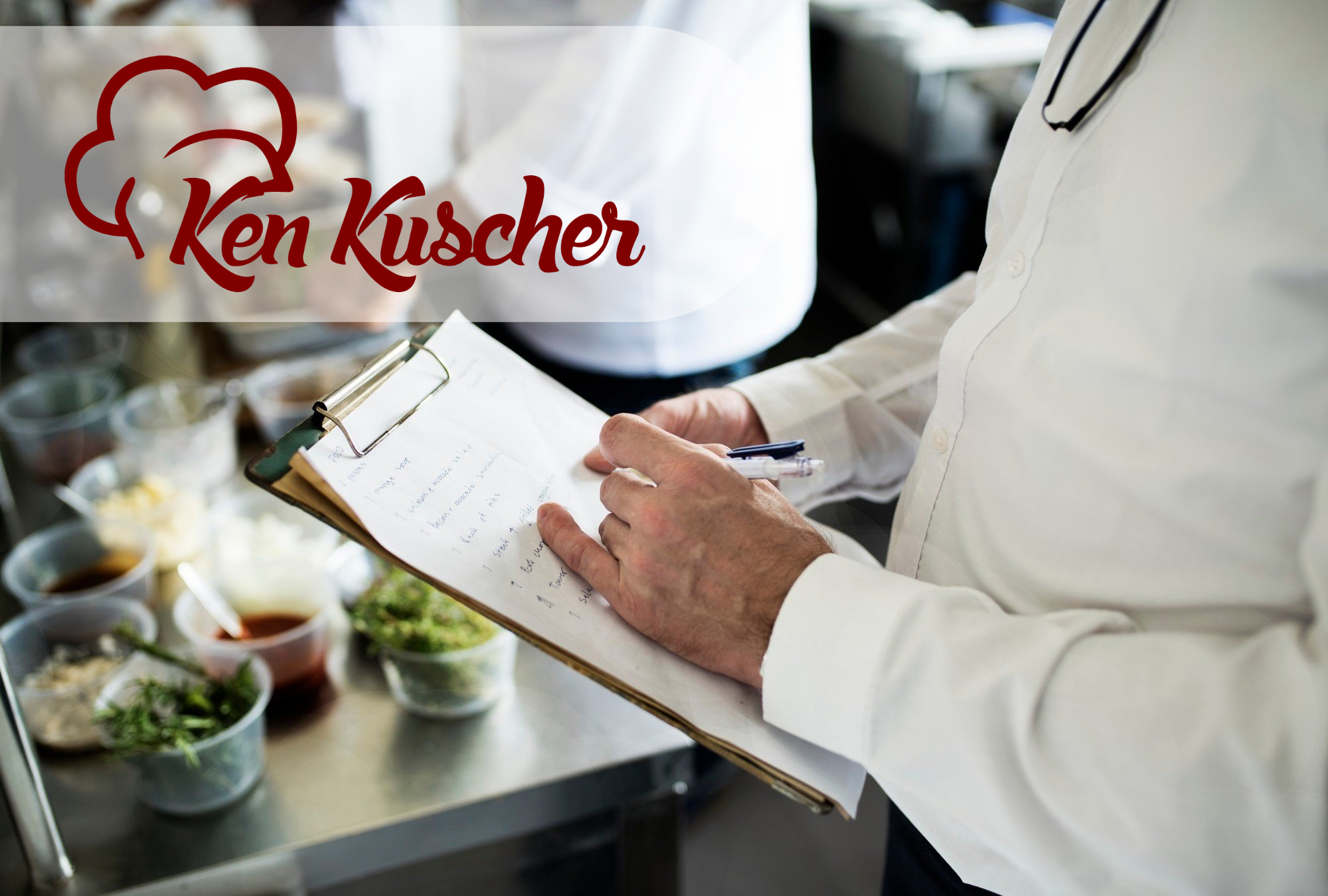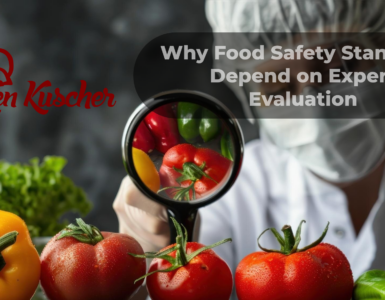The Increasing Need for Food Service Expertise in Litigation
Food service operations are subject to extensive regulations, industry standards, and public health expectations. These rules are not only numerous but also constantly evolving, requiring businesses to stay updated to avoid compliance issues. When disputes arise, whether due to foodborne illness claims, safety violations, or restaurant management conflicts, legal teams often rely on specialized knowledge that extends beyond standard legal training. In these situations, food service expert witnesses become indispensable, as they bridge the gap between legal frameworks and the technical realities of the food service industry.
Food service expert witnesses are uniquely positioned to analyze operational practices, review safety protocols, and identify whether industry benchmarks were properly followed. Their expertise can clarify whether a restaurant’s handling, storage, or preparation methods contributed to a case of foodborne illness, or if a business met the requirements set forth by federal, state, and local health authorities. By translating complex technical details into clear and credible testimony, they provide courts, attorneys, and regulatory bodies with the context necessary to evaluate responsibility and liability.
In recent years, the food industry has faced a growing number of legal disputes. This trend has been fueled not only by heightened public awareness of food safety issues but also by stricter enforcement of health codes and increased consumer protection efforts. High-profile cases related to contamination outbreaks, labor practices, and compliance with health codes underscore the importance of qualified experts who can explain industry best practices in a courtroom setting.
Additionally, litigation has expanded into areas such as workplace safety, wage and hour disputes, and supply chain accountability. In each of these contexts, food service expert witnesses can provide valuable perspectives on operational standards, employee training protocols, and management practices. Their insights do more than support legal arguments, they also help shape fair judgments that reflect the realities of running a food service business.
Ultimately, the demand for food service expertise in litigation is only expected to grow. As food service operations become more complex and consumer expectations rise, legal disputes will continue to require the guidance of professionals who understand the intersection of law, health, and industry standards. By offering clear, authoritative testimony, food service expert witnesses can significantly influence case outcomes while reinforcing the importance of accountability and safety across the food service sector.
Defining the Role of a Food Service Expert Witness
A food service expert witness serves as a subject matter authority during legal disputes, offering specialized insights that extend far beyond general legal knowledge. Their role is essential in cases where the technical aspects of food preparation, service, and compliance directly impact liability or damages. These professionals act as a bridge between the complexities of food service operations and the legal system, ensuring that courts and attorneys have access to objective, industry-based evaluations.
- Evaluating Food Safety Practices: A food service expert witness may be tasked with assessing whether businesses adhered to recognized safety standards, such as those established by the FDA Food Code or state health departments. This evaluation often involves reviewing food storage methods, temperature controls, and contamination-prevention procedures. By pinpointing potential lapses, the expert helps determine whether negligence or oversight contributed to a foodborne illness claim.
- Analyzing Compliance with Regulations: Another critical responsibility is determining if federal, state, or local codes were violated. For example, experts may review inspection records, employee certifications, and sanitation practices to verify whether a food service operation maintained compliance. In cases where businesses face citations or lawsuits, the testimony of a food service expert witness can clarify whether alleged violations were isolated incidents or evidence of systemic issues.
- Examining Food Handling Procedures:
Food handling is often at the center of disputes, particularly when contamination or illness occurs. A food service expert witness reviews whether employees followed required training and certification protocols, such as obtaining florida food handler certificates, which are mandatory for food workers in that state. Beyond certification, the expert evaluates if staff implemented the training effectively covering areas such as cross-contamination prevention, proper hygiene, and safe cooking methods.
- Testifying in Court: Perhaps the most visible aspect of their work, food service expert witnesses present their findings in a clear, credible manner that jurors and judges can easily understand. This includes translating complex food safety or operational procedures into straightforward explanations, using charts, diagrams, or analogies when necessary. Their ability to communicate effectively is often decisive in shaping the outcome of a case.
Food service expert witnesses are not limited to disputes involving restaurants alone. They may be called in cases related to hotels, catering companies, institutional kitchens (such as schools or hospitals), or any organization operating within the food service industry. Their input ensures that legal decisions are informed by accurate and practical knowledge of industry best practices, operational standards, and safety protocols.
By providing objective, evidence-based insights, food service expert witnesses help courts balance consumer protection with the operational realities faced by food service businesses. Their contributions reinforce accountability across the industry while supporting fair and just legal outcomes.

Why Attorneys and Insurers Rely on Expert Witnesses
Attorneys often face highly technical questions during food-related litigation, where the facts of a case hinge on the details of food preparation, handling, and compliance. Insurance companies also depend on accurate assessments to evaluate liability and claims, since financial outcomes are directly tied to determining whether a food service business acted responsibly. In both contexts, a food service expert witness plays a pivotal role by offering specialized knowledge that bridges the gap between industry practices and legal requirements.
Their expertise provides clarity in areas such as:
Foodborne Illness Outbreak Tracing
When multiple parties are involved in a contamination incident, attorneys and insurers must determine whether the source of a foodborne illness can be linked to a particular establishment, supplier, or process. A food service expert witness examines epidemiological data, inspection reports, and operational records to identify the likely point of contamination. This type of analysis is critical for resolving disputes over liability and for limiting exposure to fraudulent or exaggerated claims.
Sanitation and Hygiene Protocols
Proper sanitation is a cornerstone of food safety. Experts evaluate cleaning schedules, employee hygiene practices, and equipment maintenance records to determine whether established standards were followed. Attorneys use these findings to argue negligence or compliance, while insurers rely on them to confirm whether a claim is valid. In many cases, testimony regarding sanitation protocols can be the determining factor in whether liability is upheld or dismissed.
Employee Training and Supervision Standards
Food service operations depend on well-trained staff to minimize risks. A food service expert witness reviews whether employees received the appropriate training in food safety and whether management provided adequate oversight. This may include assessing programs such as ServSafe certification or the requirement of state-specific credentials, like florida food handler certificates. For both attorneys and insurers, evidence of poor or incomplete training can strongly influence the outcome of a case.
Kitchen and Facility Inspections
Regulatory inspections are often central to food service litigation. Experts analyze past inspection reports, facility layouts, and compliance records to assess whether businesses consistently met required standards. By interpreting these documents in the context of industry best practices, a food service expert witness provides attorneys and insurers with an objective evaluation of a business’s operational integrity.
Supply Chain Management and Vendor Compliance
Foodborne illness outbreaks and safety violations are not always limited to in-house operations; they may stem from suppliers, distributors, or contractors. A food service expert witness investigates vendor compliance, tracing whether ingredients were sourced, transported, and stored according to regulations. This type of review is especially valuable for insurers handling multi-party claims, where liability may be shared across several entities in the supply chain.
The Role of Food Safety Regulations in Legal Proceedings
Food safety is heavily regulated at both the federal and state levels. The U.S. Food and Drug Administration (FDA) provides extensive guidelines for food safety operations, while state and local health departments enforce specific codes. When violations occur, litigation often hinges on whether a business met these standards.
Food service expert witnesses often reference authoritative sources such as:
- FDA Food Safety Guidance
- CDC Foodborne Illness Prevention Resources
- USDA Food Safety and Inspection Service
These references allow expert witnesses to align their testimony with widely accepted benchmarks, strengthening the credibility of their evaluations.
Foodborne Illness Cases and Expert Testimony
One of the most common areas requiring expert witness involvement is foodborne illness litigation. Such cases can involve multiple parties, including restaurants, suppliers, distributors, and insurers. An expert must evaluate whether the illness was caused by improper handling, inadequate storage, or contamination during preparation.
Key areas of assessment include:
- Temperature control and refrigeration practices
- Cross-contamination prevention
- Employee hygiene practices
- Compliance with training, including food handler certificates Florida
Expert testimony can provide decisive clarity, ensuring that liability is fairly assessed.
Restaurant Operations and Expert Witness Involvement
Restaurants frequently face litigation beyond foodborne illness, including disputes related to operations, labor, and safety. A restaurant expert witness may be called to review management practices, facility conditions, and staff training.
Typical areas of analysis include:
- Compliance with occupancy and fire safety codes
- Proper alcohol service policies
- Employee scheduling and wage disputes
- Facility design and safety hazards
By providing objective evaluations, expert witnesses assist courts in determining whether restaurant operations adhered to accepted industry standards.
Training and Certification in the Food Industry
Food service establishments are required to ensure that employees possess proper training and certifications. Programs such as florida food handler certificates best price and florida food handlers card are essential for compliance and consumer safety.
When litigation arises, the absence or mismanagement of training documentation can have serious legal implications. Food service expert witnesses often review these records to determine whether employees were adequately trained to prevent risks.
The Value of Neutral, Objective Testimony
The credibility of an expert witness lies in their objectivity. Courts rely on experts who can present facts without bias. Ken Kuscher, for example, is recognized as a food safety expert with decades of industry experience, offering balanced and fact-based evaluations in complex disputes.
By focusing on evidence rather than advocacy, expert witnesses maintain trust with both legal teams and courts, ensuring that their testimony carries weight.
Future Trends in Food Service Litigation
As the food industry evolves, new challenges are emerging that will require expert analysis in litigation. The landscape of food service is no longer limited to traditional safety and compliance concerns; instead, it is being shaped by consumer expectations, regulatory updates, and global shifts in supply chain management. Each of these trends presents new areas of potential dispute where the specialized knowledge of food service expert witnesses will be increasingly critical.
The Role of Technology in Monitoring Food Safety Compliance
Digital tools are becoming standard across food service operations. From temperature-monitoring sensors in refrigeration units to cloud-based platforms for inspection recordkeeping, technology now plays a central role in ensuring compliance. While these tools enhance transparency, they also introduce new questions for litigation: Was the technology properly calibrated? Were digital records maintained accurately? Did management respond appropriately to automated alerts? A food service expert witness can analyze these systems to determine whether businesses relied on them responsibly or if failures contributed to a violation.
Increased Focus on Supply Chain Transparency
Global supply chains create complexity in sourcing ingredients, and litigation is increasingly tied to transparency and traceability. Disputes may arise over mislabeled products, contaminated imports, or unethical sourcing practices. A food service expert witness may be asked to evaluate vendor compliance, review documentation of supplier audits, or determine whether due diligence was sufficient to prevent risk. This role is expected to expand as consumers and regulators demand more visibility into the origins of their food.
Legal Disputes Related to Sustainability and Environmental Practices
Sustainability is no longer just a marketing trend, it is a growing legal concern. Cases involving waste management, energy efficiency, packaging, and environmental claims are becoming more common. For example, litigation may involve allegations of “greenwashing,” where companies exaggerate their sustainability efforts. In such cases, food service expert witnesses can provide testimony on whether operational practices align with industry standards and environmental regulations, ensuring that claims are backed by fact rather than perception.
Growing Emphasis on Allergen Labeling and Consumer Disclosures
Food allergies remain a major public health concern, and stricter regulations around allergen labeling are emerging globally. Failure to disclose allergens properly can lead to severe health consequences, legal disputes, and reputational harm. Expert witnesses may be asked to assess whether allergen protocols were followed, if menu labeling was accurate, or whether staff training included proper handling of allergen-related requests. Their testimony helps clarify whether businesses acted responsibly or neglected crucial consumer safety requirements.
Looking ahead, food service expert witnesses are expected to play an even greater role in guiding courts and regulatory agencies through these evolving issues. As litigation grows more complex, their ability to interpret industry practices, evaluate compliance with emerging standards, and provide clear, authoritative testimony will remain indispensable. Businesses that engage experts proactively will be better positioned to adapt to these shifts, mitigate risks, and maintain consumer trust in an increasingly scrutinized industry.
Supporting Legal Teams with Specialized Knowledge
Law firms, insurance providers, and regulatory agencies benefit significantly from engaging food service expert witnesses. Their insights:
- Clarify technical issues for judges and jurors
- Strengthen the credibility of legal arguments
- Provide context for regulatory compliance disputes
- Offer authoritative perspectives in settlement negotiations
Ultimately, their expertise ensures that decisions are grounded in fact and industry reality rather than speculation.

Encouraging Proactive Risk Management
Beyond litigation, expert witnesses also help businesses adopt proactive risk management strategies that strengthen long-term operational stability. Instead of only serving as a resource once a dispute reaches the courtroom, food service expert witnesses can evaluate a company’s practices beforehand, identifying vulnerabilities that may otherwise go unnoticed. This preventative role is increasingly valuable in an industry where even small lapses in safety or compliance can escalate into costly legal challenges and reputational damage.
By identifying potential compliance issues early, expert witnesses enable restaurants, hotels, catering companies, and other food service providers to implement corrective measures before regulatory bodies or customers raise concerns. These measures may include revising sanitation protocols, improving vendor oversight, or addressing gaps in documentation related to inspections and certifications. Such interventions not only reduce the likelihood of disputes but also demonstrate a company’s commitment to accountability and consumer safety.
Improving employee training is another critical component of proactive risk management. A food service expert witness can recommend training programs that address weaknesses in food handling, sanitation, and supervisory practices. For example, ensuring staff complete mandatory certifications such as florida food handler certificates helps businesses remain compliant while also building consumer trust. Regular refreshers and targeted training for management teams further reinforce these standards, ensuring that best practices are consistently applied across all operations.
This preventative approach benefits multiple stakeholders. Restaurants and food service operators reduce the likelihood of costly lawsuits and regulatory penalties. Insurers benefit from fewer high-value claims, supported by evidence that businesses are actively working to mitigate risk. Consumers, in turn, gain greater confidence in the safety and quality of the food they consume. Together, these outcomes strengthen the overall resilience of the food service industry.
Ultimately, encouraging proactive risk management with the support of expert witnesses transforms compliance from a reactive obligation into a strategic advantage. By investing in prevention rather than crisis response, businesses not only protect themselves legally but also enhance their reputation, improve customer satisfaction, and create safer dining experiences for all.
Exploring Resources for Legal and Food Industry Professionals
Legal professionals and businesses involved in food service disputes can benefit from understanding the vital role of expert witnesses. Exploring certification programs such as florida food handler certificates and consulting with established experts ensures compliance with industry regulations and provides a strong foundation for defending or contesting legal claims.
Those seeking further guidance can reference authoritative resources such as the FDA, CDC, and USDA for regulatory insights. For specialized expertise, engaging an experienced florida food expert witness ensures that cases are supported by credible, fact-based testimony.
Final Perspective
The role of food service expert witnesses in legal disputes cannot be overstated. These professionals bring critical expertise that allows courts, attorneys, insurers, and businesses to navigate the technical realities of food service operations with clarity. By providing neutral, authoritative testimony grounded in industry standards, they ensure fair outcomes in cases involving food safety, restaurant operations, and regulatory compliance. Their input helps bridge the gap between highly technical food service practices and the legal system, making their contributions vital to the resolution of complex disputes.
As the food industry continues to face increasing scrutiny from regulatory bodies, consumers, and the media, the expertise of professionals such as Ken Kuscher remains indispensable. His background and ability to translate industry best practices into courtroom-ready testimony exemplify the value of food service expert witnesses in ensuring accountability and fairness. Whether addressing issues related to foodborne illness, sanitation lapses, labor disputes, or vendor compliance, the testimony of an expert can be the deciding factor in the outcome of a case.
Legal teams, insurers, and businesses facing disputes are encouraged to consult authoritative experts at the earliest stage of litigation. Doing so provides a strategic advantage by identifying potential compliance issues before they escalate, strengthening defense or prosecution strategies, and ensuring that evidence is interpreted correctly. Beyond litigation, expert consultation can also be used proactively, helping businesses minimize risk by improving training, updating operational procedures, and ensuring regulatory compliance.
An additional resource in this area involves workforce education. Obtaining proper certifications not only ensures compliance but also reduces liability in the event of disputes. Training programs and credentials such as florida food handler certificates best price equip employees with the knowledge they need to handle food safely, maintain sanitation standards, and protect both customers and business owners from unnecessary risk. When paired with the guidance of a seasoned expert witness, these resources form a comprehensive defense against both operational and legal vulnerabilities.
Ultimately, the presence of a food service expert witness elevates the credibility of legal arguments and reinforces the importance of safety and compliance within the food service sector. By leveraging expert testimony and investing in proper training resources, legal teams and businesses can navigate the complexities of food-related litigation with confidence, ensuring outcomes that are not only legally sound but also aligned with industry best practices.





